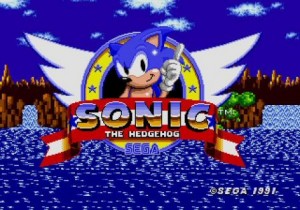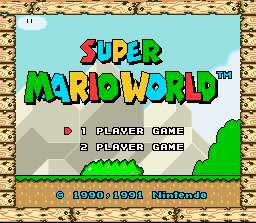Available Exclusively On…
Content Exclusivity – Those two words drive me insane! Nothing bothers me more than getting excited for a really cool game and then finding out that I can only purchase it for the one platform I don’t own! To me it’s as good as an insult from the game developers. Is it that they feel that my console isn’t good enough for them to develop for? Do they hate it that much? Do they not want my money? Or is it really because some console developer gave them a boatload of cash to keep the content exclusive for their console? Regardless of the reasons, I still hate it. Exclusive content might sell a few more consoles, but it severely limits the potential sales numbers by cutting out 1/3 to 1/2 of the clientele. Let’s take a look at how exclusive content has affected the industry, and my personal gaming experiences.
Exclusive content for video games isn’t new, but we don’t really have any comparisons until Sega entered the gaming market with the Genesis competing against the Super Nintendo. Looking at the Sega Genesis and SNES we get the first major “Mascot Battle” in gaming, namely we have Super Mario vs. Sonic the Hedgehog. Both of these characters were the face of their console and both had an impressive array of games. However, their games were only available on their respective consoles. If that were the only difference, then there wouldn’t be much of an issue. The real problems lie in the more exciting exclusives, of which there were very few gems on the Genesis. Sure Genesis had Comix Zone, and Phantasy Star; But SNES had titles like Secret of Mana, StarFox, Donkey Kong Country, Final Fantasy, Metroid, and Legend of Zelda! If I were asked to pick between the two consoles now I would easily choose the SNES, but as a child I opted for a Sega Genesis. Sega was marketed as the “cooler” system, and why wouldn’t I want to be cool? Herein lies the point of all of this: If you ask me if I played any major SNES release my answer will be “No” 9 times out of 10. This is all because game developers were intent on producing their games for only 1 console, thus eliminating half of the customers. I’m sure this also had to do with Sega’s decision to only allow first party titles on their console toward the end of it’s life cycle, but that’s a story for another time.

|
 |
If we look ahead in console generations we see a bit more of the same: Sega get’s destroyed by Nintendo. PlayStation and N64 battle Bandicoot vs. Plumber. Microsoft competes with Japan. Nothing changes. They all offer exclusives in one form or another, and try to entice you to purchase their console over the rest. If we skip to the current gen we see where things begin to fall apart. Even with the PS3, Wii, and 360 we have a ton of exclusive content available on each console. This is still not very different from the previous generations, forcing me to choose between Halo and Resistance, or Gears of War and Uncharted. Of course there’s always more Super Mario on the Wii! What really changed the game was the inclusion of console specific DLC in Multi-Platform titles. While I may purchase Call of Battle: Modern Shooting 15 for my PS3 I could end up with a completely different experience than my friend who bought it for the 360. We won’t even get into the poor sap that bought it for his Wii… We’re going to assume that on Day 1 CoB:MS15 has the same number of sales on both PS3 and 360, and none on the Wii (Sorry Wii… You can play the new Zelda game though!). We then find out that the first map pack, “Moar Shootingz!”, is being released 6 hours after release, however it’s only being released for 360, while PS3 owners need to wait 6 months. Thus the content developers segregate the players by console, pushing their fans away from future purchases due to the fear of not purchasing the game for the “right” console. Not to mention the fact that CoB:MS15 is now only capable of making half it’s potential DLC sales for 6 months! And 6 months from now the PS3 owners could be into something else entirely, thus lowering the potential for a sale on the delayed release content even more!
Let’s take Fallout 3 as an example. I loved the game! I purchased the Collectors Edition game, Collectors Guide, posters and any other swag I could find. Then 3 months later 5 DLC packs were announced for 360 with 6 months exclusivity after the 5th release. That put my console more then a year behind the 360 in “expansion content.” And you wanna hear the kicker? I have never played any of the Fallout 3 DLC, and I refuse to purchase it on my PS3. I personally don’t know any one that outright purchased the DLC on PS3. By the time the DLC was actually released on PS3 we had all moved on to other exciting games. It seemed absurd to go back and play a game I stopped playing more then 6 months ago.
The sad truth is that the behavior seen from the game developers of Fallout 3 is common. Game developers have become so easily swayed by upfront sums of money offered by Console Developers that they fail to recognize the loss created by content exclusivity. Content exclusivity has become such a standard to the gaming industry that it’s extended to the one place no gaming enthusiast ever saw it going: Cell Phone Games. I cannot play Infinity Blade because I own and Android device. Epic Games has stated that they will not release any games on Android because they don’t feel that it would work consistently based on the software installed by the Phone Carriers. So rather then find a way around this Epic games would rather see that only a selected audience gains access to their games, and make only a selected profit from said games. I simply can’t fathom why someone would want to severely limit their profit just to save a few buck on development costs.
The good news here is that some game developers are starting to see the downside of content exclusivity. They know that a console exclusive means high levels of support from console developers, but it limits the potential profit. Exclusive DLC on top of that limits profit even further! Take a look at Bungie and Insomniac. Both huge third party developers for exclusive games on 360 and PS3 respectively. Both Bungie and Insomniac have left the “Available Exclusively On…” titles that have made them famous, and instead are opting to create Multi-Platform IPs. These content developers are treading into uncharted waters to better themselves, and to become more profitable. We can only hope that more developers follow in suit, to create a more universal gaming experience for every gamer.
- One-Quest was founded many millennia ago in a galaxy know as "n00b," by a foundation of Nerds. n00b was a small galaxy ruled by an evil empire, known as the "Hipstars." One-Quest formed with the sole purpose of removing the Hipstar empire from power, and restoring balance to all Nerds...







